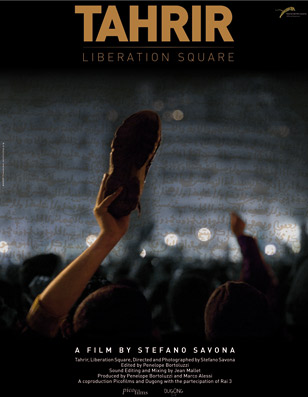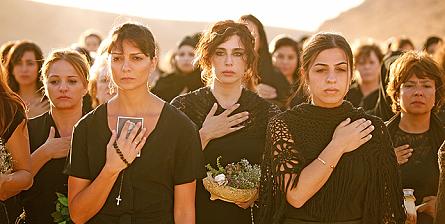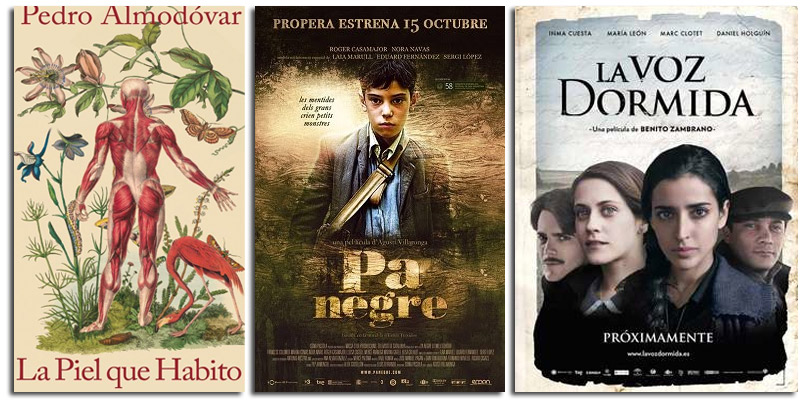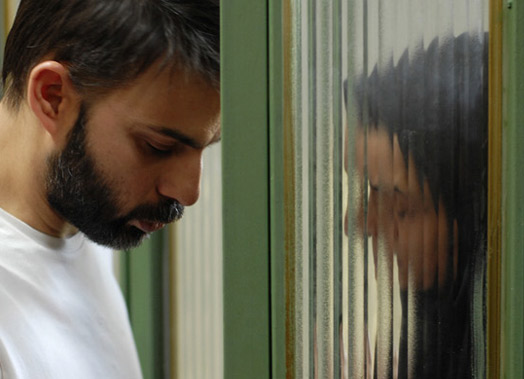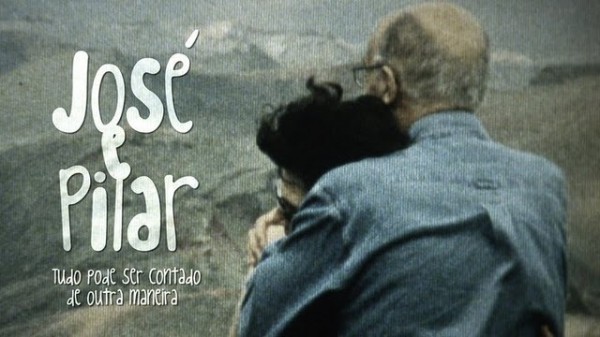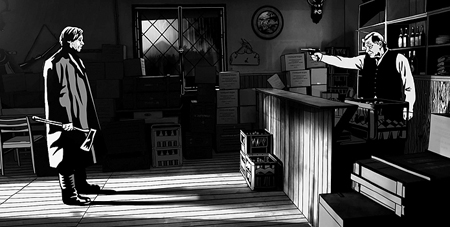NYFF: "The Student" and "A Separation"
 Saturday, October 1, 2011 at 7:00PM
Saturday, October 1, 2011 at 7:00PM In an effort to not fall behind on NYFF coverage, here's a double feature from Argentina (possible Oscar submission) and Iran (Oscar submission!) .
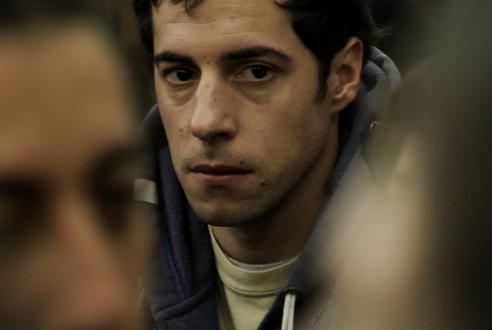 THE STUDENT
THE STUDENT
Have you ever longed to learn every detail of the chaotic, multi-partied, backroom deal heavy politics of Argentina through the metaphorical microcosm of elections at a Buenos Aires university? If you answered "yes" than Santiago Mitre's The Student is the movie for you! If you answered "huh, what?" than I should quickly add that I'm not entirely sure that that's what The Student is on about. The movie's continual barrage of name-and acronym heavy information, both in dialogue and in dry omniscient narration, and its crowded character map of continually changing alliances and sudden betrayals suggests to me that politically aware Argentinians would understand and revel in its deeper implications more clearly than I possibly could.
As it is I was, like the titular character Roque (Esteban Lamothe), initially only fascinated by this vivid new world opening up all around me without ever quite understanding it. One terrific shot in the movie looks at the back of Roque's head, more specifically his ear, as he drinks up a ton of dizzying new knowledge, with more focus and determination than he ever uses while snorting up a line of coke or screwing his latest conquest. Unlike Roque however, who reveals hidden political aptitude that dwarfs but doesn't quite mask his obvious limitations, the lessons never stuck. Part of The Student's point is how quickly the various rugs will always be pulled out from under you in the dirty game of politics, but the ever shifting landscape eventually frustrates with its perpetual loop of climaxes that become anti-climactic, given that they merely reset the crowded board of players rather than ending the game. The Student's 124 running time becomes an endurance test, a Sisyphian lecture for a quiz that will never come. B- (C+?)
A SEPARATION
Our next film, which is nearly the exact same length, achieves quite the opposite effect, growing more fascinating with each new scene and abundant detail. Asghar Farhadi's A Separation initially appears to be a well made but standard marital drama, as Naader (Peyman Moaadi) and Simin (Leila Hatami) spar in front of a judge over custody of their child Termeh (Sarina Farhadi). Simin wants to move to America where her daughter will have more opportunity (though the family seems well off in Iran) and Naader, almost too-willing to let his wife go, is unwilling to part with his daughter. His mind is elsewhere, perpetually worrying about his ailing father who has Alzheimers.
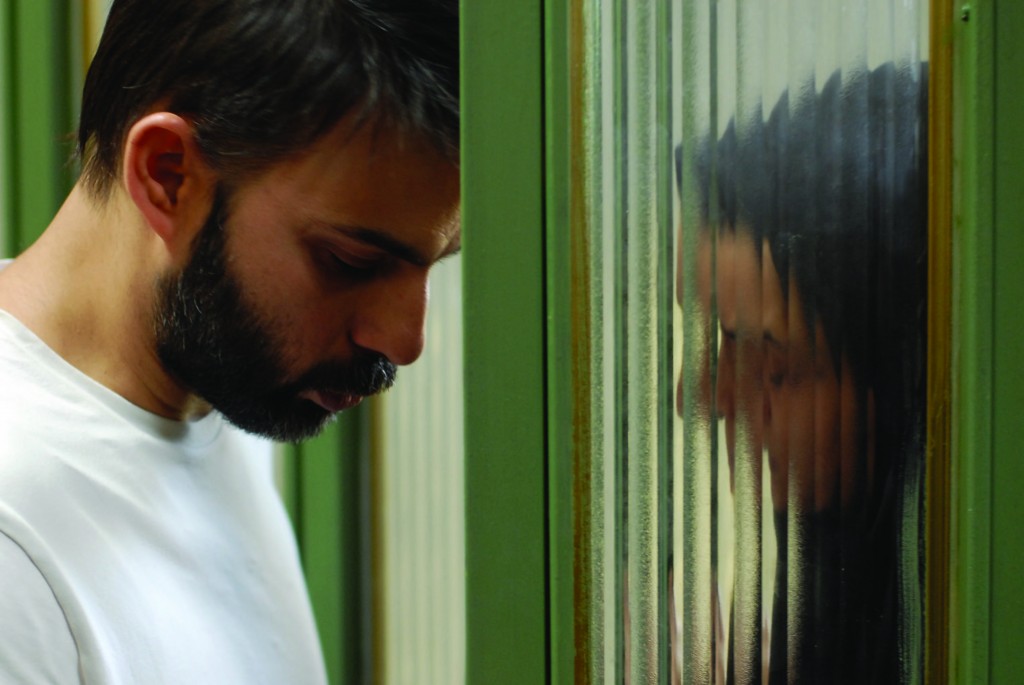 Naader has issues with Razieh (Sareh Bayat), his cleaning woman
Naader has issues with Razieh (Sareh Bayat), his cleaning woman
The separation, though semi-amicable (no one is losing their temper), sets off a chain of unfortunate events. Through an economically conveyed but richly textured series of plot points, Naader has an altercation with the hired help (a poor couple, also with a troubled marriage) who are supposed to clean house and care for his father in Simin's absence. Soon everyone is in court again albeit for entirely different reasons. What starts as a well acted and sensitively filmed portrait of an unraveling family quickly expands into a vivid exciting portrait of families on precarious emotional ledges. In what can only be described as an embarrassment of riches, A Separation does all of this while also handily becoming the most exciting courtroom procedural movie in many a year. All the hard facts become soft and twistable when filtered through multiple emotional upheavals, religious beliefs, well meaning lies and day-to-day domestic issues.
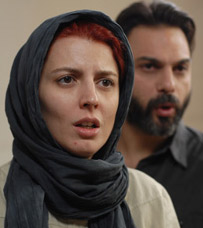 Simin (Leila Hatami) and Naader (Peyman Moaadi)American audiences accustomed to casually and wrongly assuming a monolithic Middle East culture will find the movie eye-opening and instantly relatable; the tension between economic classes, as well as the secular and religious will feel all too familiar. Best of all, though, A Separation side-steps the easy and common cinematic path of demonizing or idealizing any of its warring characters. Every time you've come to a conclusion about a character or come close to hating or blaming them, writer/director Farhadi (of About Elly fame) opens a new door or window into their soul and circumstances. This prismatically sympathetic and insightful film is one of the best of the year. A
Simin (Leila Hatami) and Naader (Peyman Moaadi)American audiences accustomed to casually and wrongly assuming a monolithic Middle East culture will find the movie eye-opening and instantly relatable; the tension between economic classes, as well as the secular and religious will feel all too familiar. Best of all, though, A Separation side-steps the easy and common cinematic path of demonizing or idealizing any of its warring characters. Every time you've come to a conclusion about a character or come close to hating or blaming them, writer/director Farhadi (of About Elly fame) opens a new door or window into their soul and circumstances. This prismatically sympathetic and insightful film is one of the best of the year. A
FWIW: Sony Pictures Classics will release A Separation in US theaters on the dread date of 12/30/11 making it technically eligible for every Oscar category.
Previously on NYFF
Carnage raises its voice at Nathaniel but doesn't quite scream at him.
Miss Bala wins the "must-see crown" from judge Michael.
Tahrir drops Michael right down in the titular Square.
A Dangerous Method excites Kurt... not in that way, perv!
The Loneliest Planet brushes against Nathaniel's skin.
Melancholia shows Michael the end of von Trier's world.



